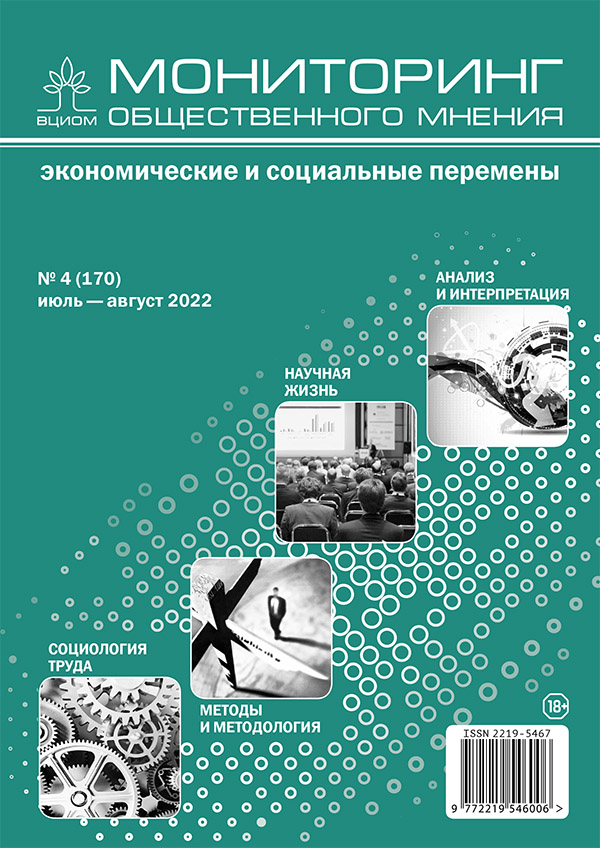Monitoring Subjective Well-Being in School: Assessment in the Framework of Modern Testing Theory
DOI:
https://doi.org/10.14515/monitoring.2022.4.2010Keywords:
subjective well-being, monitoring instrument, school age, methodology, IRT, test results, comparability analysisAbstract
Subjective well-being draws attention of both researchers and practitioners. However, there is a lack of tools for assessing subjective well-being in children with proved validity and reliability and suitable for monitoring studies. The purpose of this paper is to present a new Survey of Subjective Well-Being in School and its psychometric characteristics. In particular, the authors focus on the comparability of the results of children of different ages and genders. The survey is based on the original theoretical framework of subjective well-being in school, which has previously received empirical confirmation. The IRT (Item Response Theory) methodology is used to verify psychometric quality of the survey. The sample included students in Grade 3 (N = 842), Grade 4 (N = 838) and Grade 5 (N = 5735) in large cities in the central part of Russia. Samples were balanced by gender. The reliability and dimensionality of the scales, fit statistics, and the difficulty of the statements were analyzed, and the differential item functioning analysis (DIF) was carried out. The results showed that the Survey of Subjective Well-Being in School has good psychometric properties and can be used to conduct comparative studies in grades 3, 4, and 5. The discussion observes the possibility of using the Survey for cross-sectional and longitudinal studies.
Acknowledgements. The article was prepared in the framework of a research grant funded by the Ministry of Science and Higher Education of the Russian Federation (grant ID: 075-15-2022-325).
Downloads
Published
How to Cite
Issue
Section
License
Copyright (c) 2022 Monitoring of Public Opinion: Economic and Social Changes Journal (Public Opinion Monitoring) ISSN 2219-5467

This work is licensed under a Creative Commons Attribution-NonCommercial-ShareAlike 4.0 International License.






